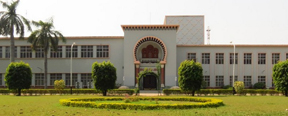 ALIGARH: A scientist at Aligarh Muslim University (AMU) has urged the Union Health Ministry to launch a nationwide multi-centered joint project to identify the percentage of occurrence of NDM-4, a deadly bacteria variant which was found by researchers here recently.
ALIGARH: A scientist at Aligarh Muslim University (AMU) has urged the Union Health Ministry to launch a nationwide multi-centered joint project to identify the percentage of occurrence of NDM-4, a deadly bacteria variant which was found by researchers here recently.
Dr Asad Ullah Khan, Chief Coordinator of the Interdisciplinary Biotechnology Lab, AMU headed the team along with other researchers which found the deadly bacteria also called the “super bug” from the hospital’s sewage.
Khan has urged the Health Ministry to launch a nationwide multi-centered joint project for identifying the percentage of occurrence, if at all, of this particular strain and all other strains of this bacteria in the country.
A collaborative effort is the need of the hour if we wish to make an accurate assessment of the situation in the country, he said.
“In Europe, hospitals are collecting hundreds of samples for identifying these bacteria but in India there are just sporadic efforts to identify these bugs. There is certainly no cause for panic as of now but laboratories all over the country which are equipped to handle such studies should launch a collaborative effort for spotting these bacteria in different hospitals,” Khan told PTI.
“It is a fact that hospitals in India are not very co-operative for conducting such tests inside hospital wards and operation theaters but if such studies become a part of a national project then we will have a true picture of the dimensions of this problem,” he added.
Khan had recently succeeded in isolating the mutant strain for the first time in India, after studying sewage water samples of a hospital.
The original bacteria from which the above strain is derived was identified as NDM-1 and was first detected in 2009.
After recording the presence of “super bug”, a team of officials from the state health department visited Khan’s lab at the Jawaharlal Nehru Medical College, AMU to discuss the fallout of his recent findings.
Khan said that he along with his team of researchers were fully prepared to cooperate in any nationwide project to isolate this bacteria in different hospitals.
“The first step which the Union Health Ministry should take is to introduce a move for mandatory hospital infection management systems in the country. Once such a step is introduced our hospitals will be as safe as any hospital in west.”
He also called for a national policy on the over-the-counter sales of antibiotics.
“This step should be preceded by a national antibiotic prescription policy wherein no antibiotic can be sold over the counter without a doctor’s prescription,” Khan said.
He said that indiscriminate overuse of antibiotics for years has led to the birth of the original antibiotic resistant strain in 2009 known as NDM-1.–PTI






